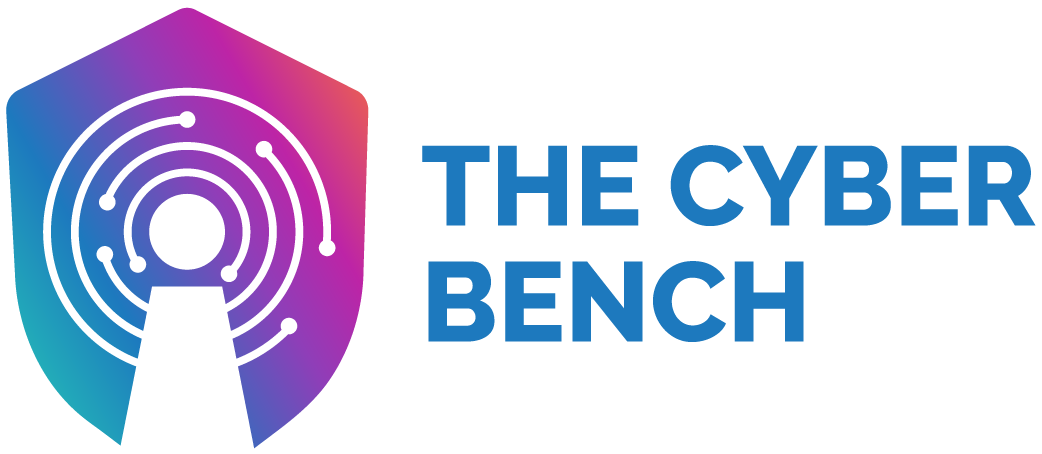February 14, 2024
Defining your ideal customer profile: boosting your cybersecurity GTM strategy
If the media is to be believed, every year in the past decade and a half is the year that cybersecurity has never been more important. As professionals who work within this space we know that this sentiment is true. Cybersecurity – having the right strategy to deal with safety and resilience – remains vitally important for every single business. This hasn’t changed in the last years. What has changed is the way we view cybersecurity and how vendors in this space bring their solutions to market.
Having a solid and comprehensive cybersecurity marketing strategy helps, as does a professional sales and marketing team to deliver it. This is where we at The Cyber Bench fit into the cybersecurity space – perfectly matching the right candidates with the right companies.
Challenges in cybersecurity marketing
When we interview candidates for cybersecurity marketing roles and cybersecurity vendors, conversations invariably turn to industry (and role) pain points. One thing that is often mentioned, is the ideal customer. Who are they? What do they look like? And how does the organisation go about reaching them?
Along with the severity of the cyber threat to modern businesses and consumers, the media also looks at how go-to-market practices are failing customers.
The solution? Without reinventing cybersecurity marketing, many firms are going back to basics and revolutionising the way they go to market, starting with their ideal customer profile (ICP) – which in turn has implications for their content marketing strategy and overall marketing approach.
Is cybersecurity marketing different to marketing other industries? The principles are the same. And, targeting a B2B audience increasingly isn’t about creating awareness of the problem (even as consumers we are well versed in the dangers that cyber criminals and hackers pose) but showing prospects how to balance growth and change, while remaining cyber resilient.
Marketers working within cybersecurity also face what sometimes feels like the insurmountable task of reaching the right people with the right message in an industry that is rife with competition. Despite the challenges, some top marketing tactics include making cybersecurity content marketing a priority, considering all types of content, including video and paid ads, always keeping SEO in mind and creating a robust (relevant) backlink strategy.
But that all comes back to – who is your audience? And how well do you know them?
The power of ideal customer profiles (ICPs)
This is where the ICP (and buyer personas) shine. Marketing automation platform HubSpot defines an ICP as your ideal buyer profile; a company that your organisation has developed your solution specifically for – “…a fictitious company that has all of the qualities that would make them the best fit for the solutions you provide”. So, ICPs are your most valuable prospective clients; those that will be most likely to buy what you’re selling.
Putting it all in context, why are ICPs so important? It is well established that organisations with solid ICPs embedded into their sales and marketing strategies are more successful than those that don’t use them properly, or at all.
Gartner goes as far as to say:
“Companies that invest in a well-defined ICP achieve compelling business results, including: faster sales cycles, higher conversion rates, greater average annual contract value (ACV) and lifetime value (LTV)”.
When done properly, your ICP becomes the foundation on which all of your marketing efforts are built and will drive other activities like segmentation and ABM (account-based marketing).
So, where do you start?
5 steps to developing your cybersecurity ICP
Here’s our 5 steps to developing your cybersecurity ideal customer profile:
1) ICP definition starts with you
Your company didn’t just develop a product and hope for the best. There was a lot of planning and research that went into product development. This is especially true for start-ups that are often built around a product idea. Starting to define your ICP actually starts here – be clear about your value proposition.
- What makes your product unique?
- What sets it apart from competitors?
- What problem is it solving?
For cybersecurity marketing this last question is a great question because the answer is so much more specific than “keeping a company secure”. Also consider your target market’s pain points and needs, and of course, how your product helps to address that.

2) Characteristics of your cybersecurity ICP
Keeping the above step in mind, now look at who your ICP actually is. Remember, your ICP isn’t a person (buyer personas come later), but an organisation, so you’re typically defining them by firmographic and technographic characteristics such as:
- Figures – size, budget, revenue, funding
- Geography – where are they based, where are their markets
- Industry – where do they operate, who are their customers
- What do they sell, who do they sell to, are there any compliance or legal issues they face
- What technologies they use
In practice, how do you go about this? The answer is – Data. Data. Data!
ICPs are created from qualitative, quantitative and predictive data, as well as insights gleaned from key stakeholders and current customers. This is where having a robust CRM platform can add significant value – keeping track of customer information, identifying trends and using insights to inform both the formation of your ICP and buyer personas, as well as your onward marketing strategy.

You should also use data from other sources within your business, such as your ERP, focus group interviews, or any other research that was done as part of the product development process.
3) Don’t dismiss market research
While your business will no doubt have conducted research before and during product development (and you can certainly use those insights in your cybersecurity ICP development process) you can also take that a step further and broaden out your knowledge by looking at your industry, your competition, and your potential customers.
Sources of market research:
- Google Trends and SEO tools – these can be helpful in looking for trends when it comes to keywords and topics
- Industry reports – there are a myriad of research companies, such as Gartner, McKinsey, MarketsandMarkets, Dun & Bradstreet that publish reports (paid and free) detailing market size, trends and customer behaviour
- Social media listening – platforms such as Keyhole or Sprout Social can be used to monitor conversations of potential customers across social media identifying topics and pain points

4) Shaping cybersecurity marketing with buyer personas
The next step, once you’ve defined your ICP incorporating all of that data, is to develop your buyer personas. Whereas your ICP is the ideal customer company, your buyer personas are the (fictitious individuals within that company who are likely to be involved in a purchase decision – from a junior in the IT department doing research to the savvy CSO who has the final say.
This is where it gets interesting – knowing as much as you can about your ideal customers will help when aligning your content and messaging with these personas and where they are in the buying journey.
Which means it pays to be as specific as possible, looking at demographics and psychographics, including:
- Job title and seniority
- Age and gender
- Education
- Pain points
- Motivations

Understanding these individuals is key to making sure you’re saying the right thing, at the right time, through the right channel, and ensuring your cybersecurity content marketing strategy is successful.
5) Build the right team
At a high level, your GTM team is the best place to start with your ideal customer profile development. However, we know that it’s often challenging finding sales and marketing professionals well-versed in delivering cybersecurity marketing strategy, who understand lead generation, and can nail that ICP.
This is where we can help. We know what makes the cybersecurity industry tick and we understand what both candidates and vendors are looking for. Our aim is to match the best people with the best companies – and we can help you recruit GTM roles including:
- Business/Sales Development Reps
- BDR/SDR Managers
- New Business Account Executives
- Account Managers
- Pre-Sales Engineers
- Customer Success Managers
- Channel / Alliance Sales Managers
- Marketing Managers
- Directors
- VPs and C-Suite Executives
We can help you build your ideal team – who can help you build your ideal customer profile. Take a look at how we operate, or get in touch with us to discuss your cybersecurity recruitment requirements.
